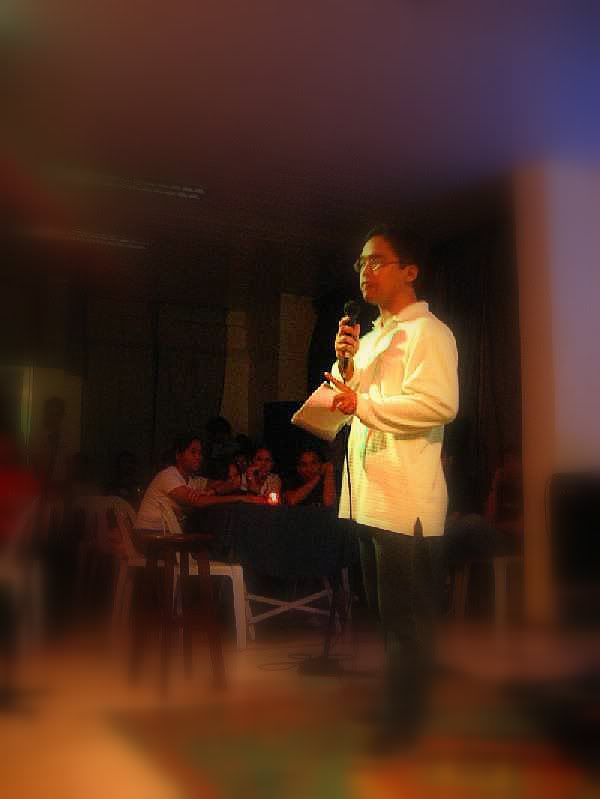
G. K. Chesterton
Relics Along the Seashore
Chapter 3, Soul Survivor
By Philip Yancey
If I were asked to come up with a list of writers I would hope to emulate, I would want to include the name of Gilbert Keith Chesterton on that list. I said "I would want to" because in truth, barbarian that I am -- I haven't read a single work of his.
What I know of Mr. Chesterton is mainly from the numerous times that Philip Yancey has mentioned him in many of his books -- and they were all glowing praises. Wikipedia writes that Chesterton 'wrote around 80 books, several hundred poems, some 200 short stories, 4000 essays, and several plays. He was a literary and social critic, historian, playwright, novelist, Catholic Christian theologian and apologist, debater, and mystery writer. He was a columnist of The Daily News, Illustrated London News, and his own paper, G. K.'s Weekly; he also wrote articles for the Encyclopedia Brittanica."
An impressive portfolio, to be certain, but Chesterton's genius is more appreciated when we know how other famous personalities spoke of him. He often debated with men such as George Bernard Shaw, H. G. Wells, Bertrand Russel, and Clarence Darrow -- and these giants could not help but respect Chesterton, despite dissenting with his views. C. S. Lewis, perhaps the most influential Christian thinker of our time, calls Chesterton the 'father' of his faith. Neil Gaiman, respected writer and tale weaver, freely credits Chesterton's "The Napoleon of Notting Hill" as an important influence in his own "Neverwhere." Gilbert, a character from The Sandman, was also based on Chesterton. "Good Omens," a novel by Gaiman and Terry Pratchett, is dedicated to "the memory of G. K. Chesterton: A man who knew what was going on."
Chesterton is widely known for his wit and sense of humor, often employing paradox and 'uncommon sense' in making his point. When The Times asked several noteworthy authors to write essays on the theme "What's wrong with the world?", Chesterton's contribution was as sharp and incisive as an expose is to a scam:
"Dear Sirs,
I am.
Sincerely yours,
G. K. Chesterton"
I am.
Sincerely yours,
G. K. Chesterton"
Yancey praises Chesterton for not shirking against humor and showing the world a sight they rarely see: A Joyous Christian. For Yancey, Chesterton was the antithesis of the churchmates he grew up with -- humorless, pallid individuals who abhored learning and could get guilty over watching movies.
In this world where popular culture and faith has drifted farther and farther apart, Yancey believes that the world needs more G. K. Chestertons. For while powerful elocutors such as "Martin Luther King Jr. arises with power and eloquence enough to address both sides at once, Chesterton had another approach: he walked to the center of a swinging bridge, roared a challenge to any single combat warriors, and them made both sides laugh aloud." At a time when debates about faith could fill lecture halls, Chesterton would arrive late, squint at scraps of paper one can hardly call 'notes,' fumble through his pockets, laugh heartily at his own jokes, and charm not only the audience but also his opponent. In a society that takes pride in despising faith, Chesterton seemed to sense that a stern prophet will not work; he therefore took the role of a jester.
Yancey also credits Chesterton for first bringing up the problem of pleasure. While atheists and agnostics hound believers on the problem of pain, Chesterton argues that non-believers have an equal responsibility to answer why pleasure exists in this world. Yancey asks, "Why is sex fun? Reproduction surely does not require pleasure: some animals simply split in half to reproduce, and even humans use methods of artificial insemination that involve no pleasure. Why is eating enjoyable? Plants and the lower animals manage to obtain their quota of nutrients without the luxury of taste buds. Why are there colors? Some people get along fine without the ability to detect color. Why complicate vision for all the rest of us?" These questions, Chesterton and Yancey believed, lead to the conclusion on the existence of a loving God.
If I could have half the genius, humor and good nature of Chesterton, I would consider myself lucky. In the meantime, I write struggling pieces such as this:
The trouble lies, I think, not with our God changing His mind, but in our propensity to twist what is perfectly acceptable to God and make it detestable. This is the very character of sin – something pleasurable to God horrendously perverted. Eating becomes gluttony. Drinking becomes getting drunk. Sex becomes sex before marriage. Gentleness becomes cowardice. Strength becomes violence. Firmness becomes cruelty. The desire to do what is right becomes legalism.
In our fear of perverting what God has given us, or (perhaps more honestly,) in our effort to look like we’re not sinning, we run away from the wholesome and delightful pleasures that God purposely made to delight His children.
To know where this excerpt comes from, read the rest of the article here at still earthbound.


2 comments:
that's lovely. if there's one faith i fear, it is a faith with no laughter, no softness, no room for error.
why is everything the way it is? because we are human, and we have the ability to tell what is pleasurable and what is not but not have any reason behind it. :)
i love g.k. chesterton :)
Post a Comment